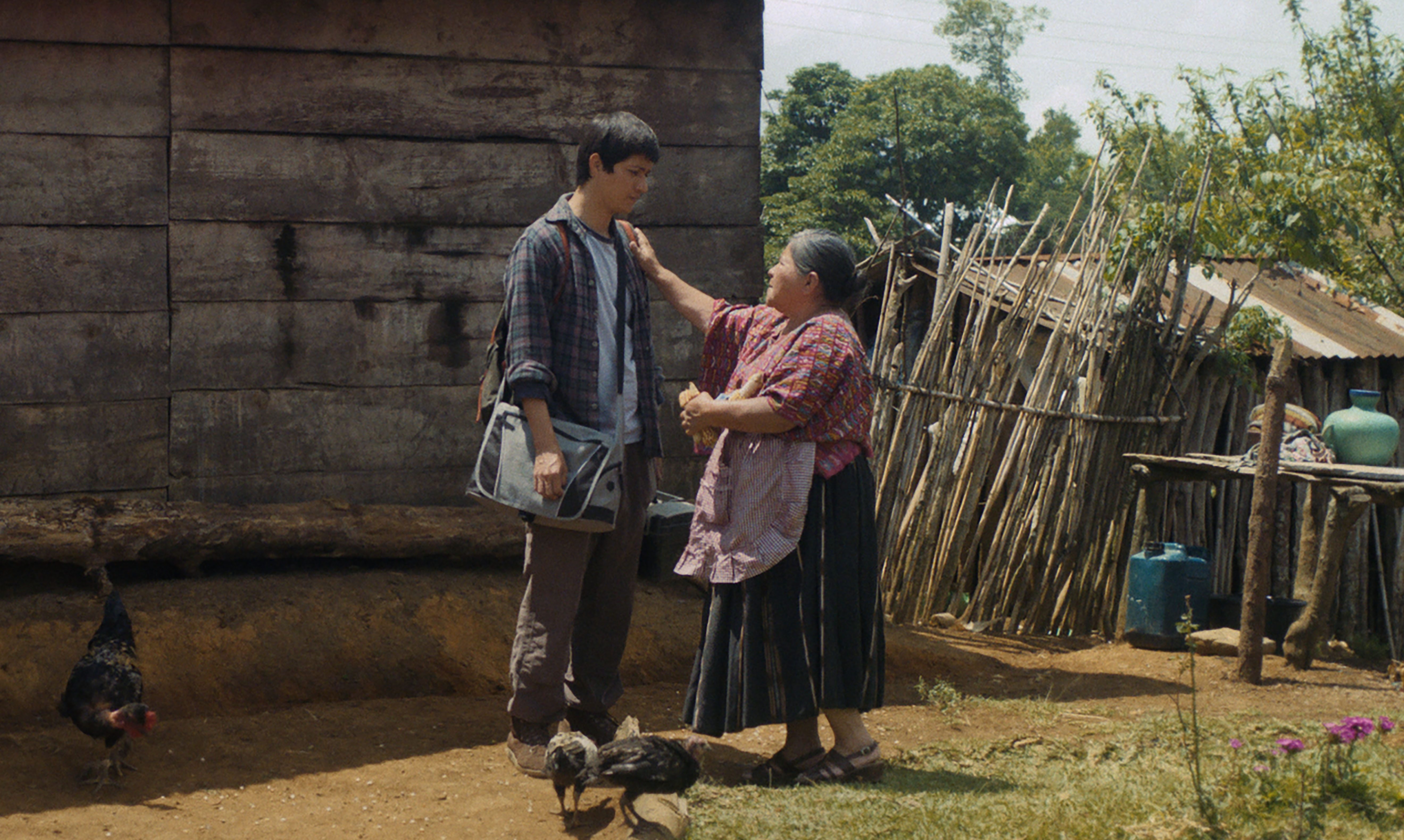“Things must be spoken for them to exist.” Nicolasa, (Aurelia Cal) a village woman travels from her remote village to beg Ernesto (Armando Espitia), a young forensic anthropologist, to help her find and exhume her husband Mateo’s body from a mass grave, to re-bury him with dignity away from that terrible place.
Ernesto realizing from her descriptions that there is a possibility that his own disappeared father,( a guerrilla leader), might also be buried there, fights to work on the site. Against all advice and orders from his boss, he insists on trying to uncover what took place. He persuades his mate Juan, to accompany him to the village. There they find that all the women, not only Nicolasia, are desperate to recover their loved ones. But that mass grave lies on private land, complicating matters so much, that Ernesto finds himself in danger of losing his job, as he is supposed to be focussing on the exhumation of the bones from the dead, lying in another clandestine mass grave right in the heart of the municipal cemetery.
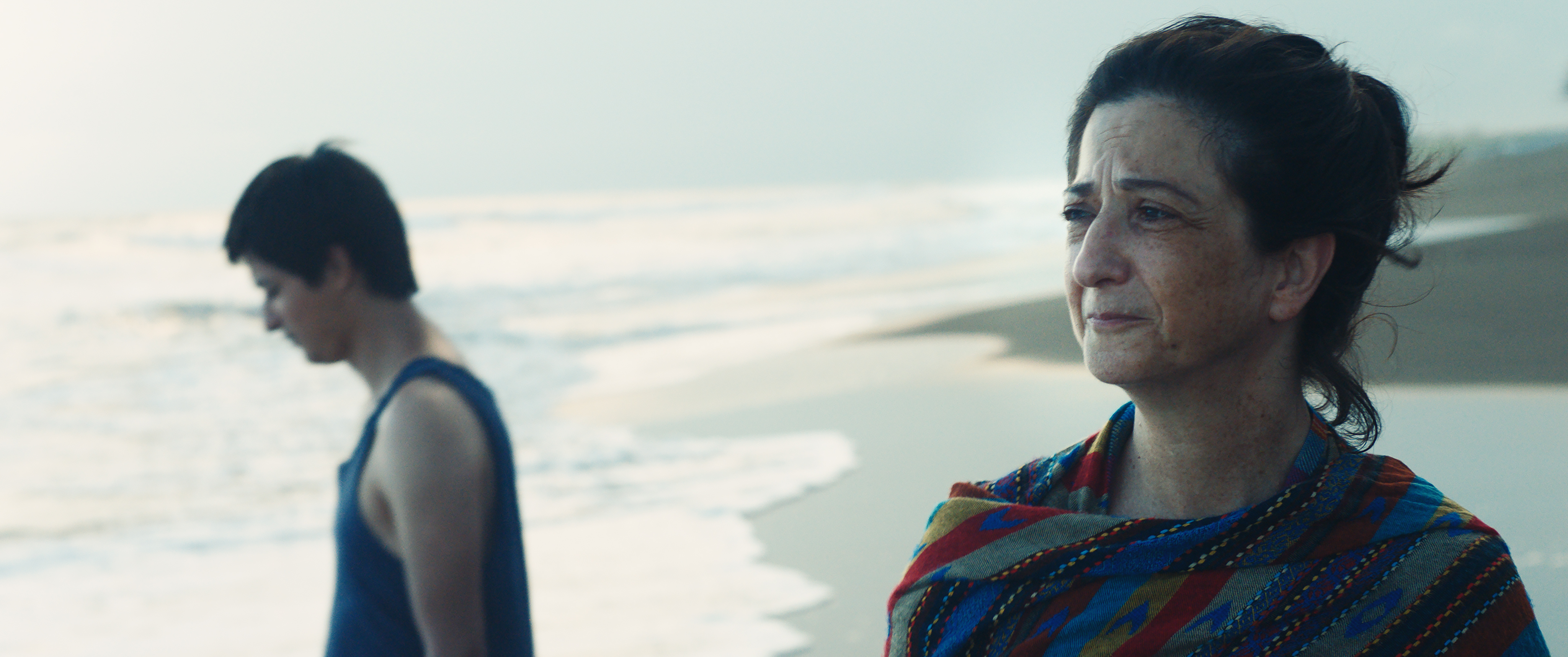
Armando Espitia as Ernesto and Emma Dib as Cristina
Ernesto’s mother Cristina (Mexican actress Emma Dib), tries to dissuade him from this quest, she, (also a fighter), wants to leave all that pain behind, but Ernesto is driven and refuses to back down leading to intrigue and unexpected discoveries.
“Ernesto, the dead are dead, even if we don’t know where they are.”
As César Díaz points out, Mayan traditions live on in the souls and lives of the people: -
“In Guatemalan Indian oral tradition, things must be spoken for them to exist. When a newcomer arrives in a village, that person is told what happened at this place, so that it is never forgotten. He or she is projected into the intimacy of a story that is sometimes extremely violent. The testimonies of these villagers upset me deeply and awoke in me the desire to make a film about them, to speak of Guatemalan history with a capital H. From a more personal point of view, for a long time, I thought that my father had been “disappeared”, a guerilla fighter at the peak of the dictatorship, between 1978 and 1984”.
This illuminates the fact that many events in this film echo experiences from Díaz’s own life. The dark days of Civil War and Dictatorship in Guatemala are not well-known across the world. It is estimated that around 200,000 people died and 45,000 disappeared between 1960s and 1996. Can we imagine 36 years of terror?
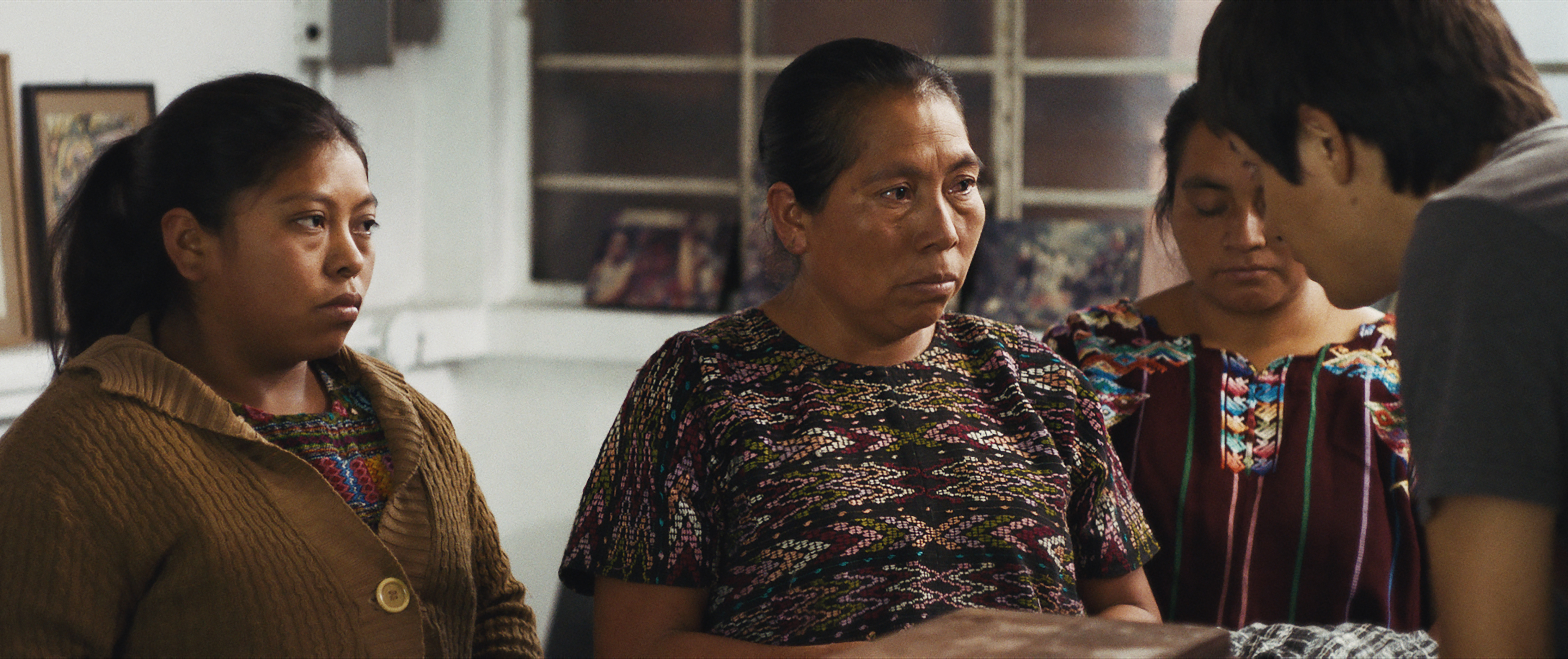
Ernesto ( Armando Espitia) talks to other women in the village
The early 1980s were the most horrific. 80% of the disappeared were indigenous Mayan civilians. Despite the fact that the guerrillas were also fighting, 90% of the worst atrocities, massacres, genocidal acts and gang rapes were perpetrated by the soldiers of the Military regime and not the guerrillas. This was institutionalized violence. The people themselves had become the ‘enemy’. The indigenous civilians, caught in the crossfire feared the soldiers far more than the guerrillas. These sought the villager’s help and assistance for food and shelter, so it was normal they did not always reveal their whereabouts to the soldiers, knowing it would lead to yet another massacre.
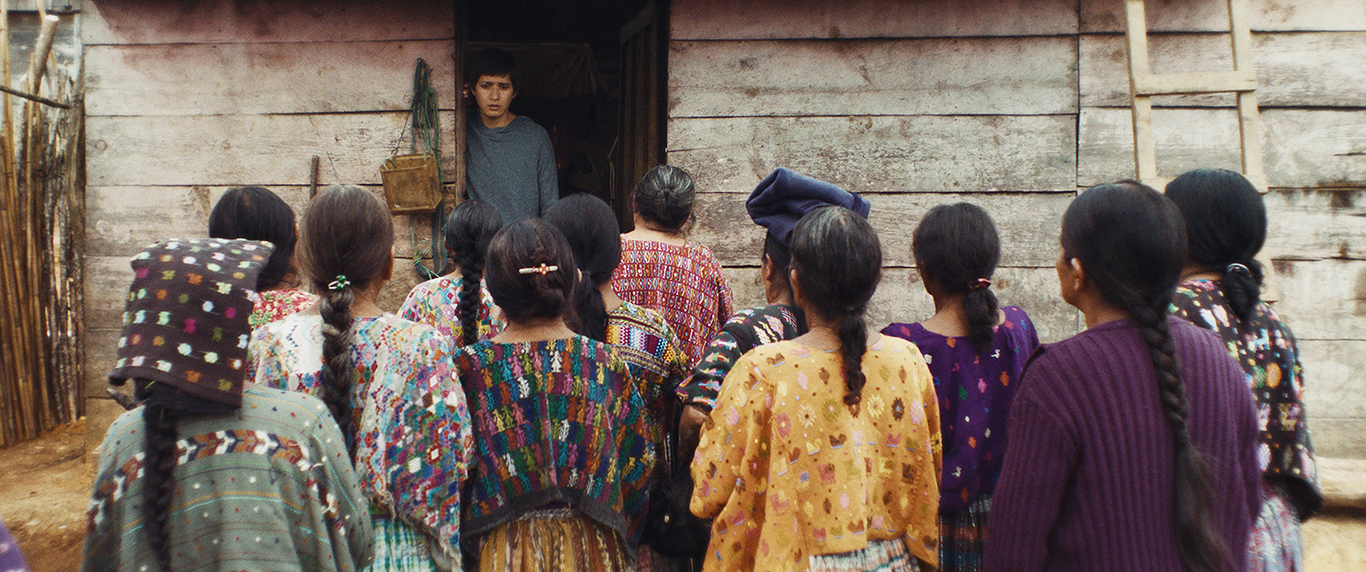
They also had cause to fear the soldiers. The atrocities included random torture, shootings and gang rapes. As Nicolasa herself reveals, after 3, she lost count and was ‘out of it’. But she decided to remain in her village despite the horrors: -
“I have got used to living with the dead.”
The film opens as Ernesto is meticulously piecing together the bones of exhumed man. phalange by phalange, toe by toe, only when the skull is added on its purpose-build cushion does the full impact hit us that this is yet another human being, mercilessly killed, possibly for no reason, certainly with no trial or proper justice.
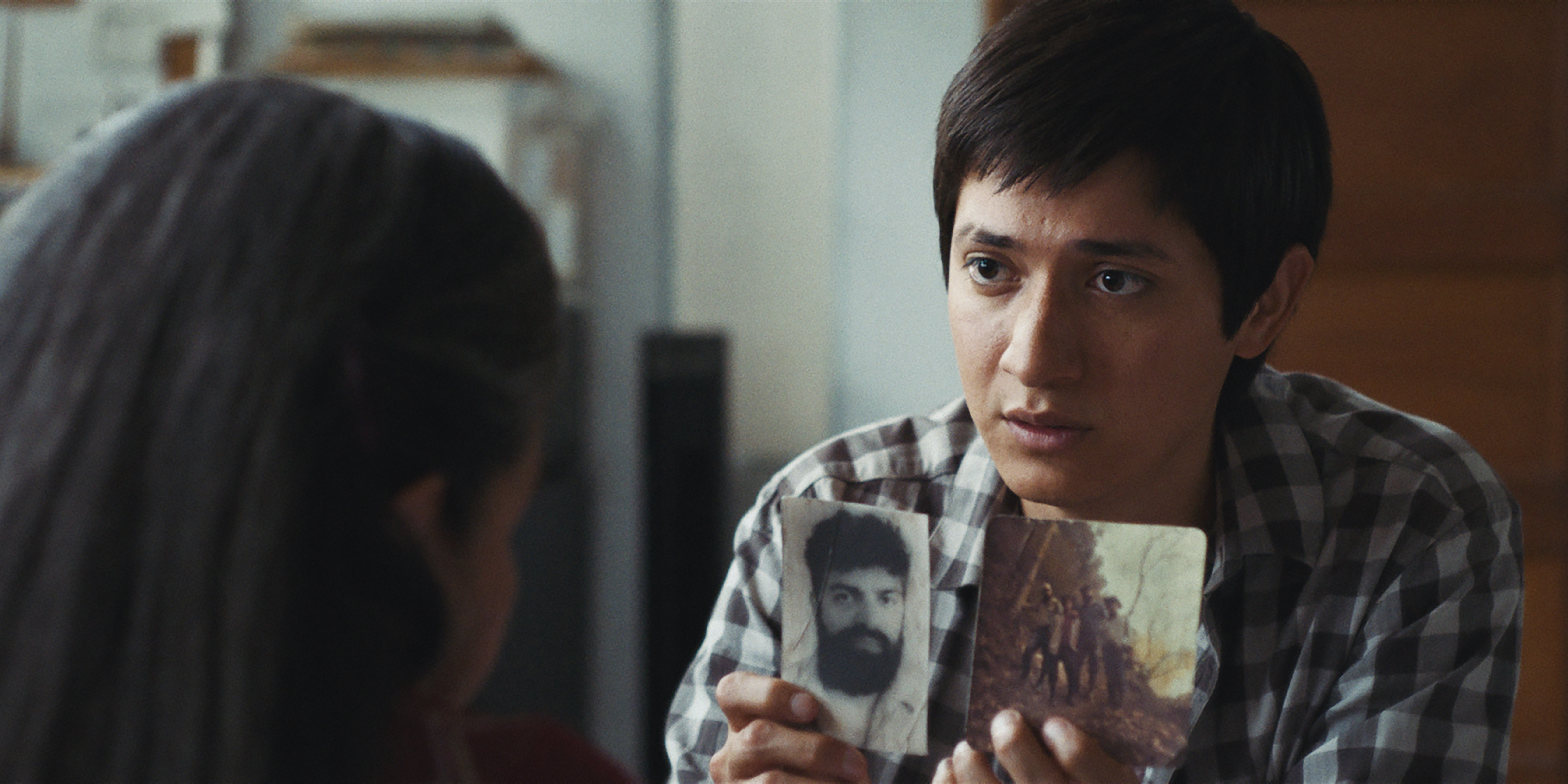
Ernesto (Armando Espitia) talks to Nicolasa (Aurelia Cal)
Through the emotional Ernesto, who is desperate to find his dead father’s bones, we understand some of the atrocities that took place. As he works at the institute, live reports of the trials of the perpetrators and the experiences of the survivors’ echoes across the room from televisions and radios.
Those 36 years were a long period of paranoia that followed on the heels of the reds under the beds McCarthy era in the USA. There was a pervading panic of communism that developed into a form of hysteria after the Cuban revolution. All Latin American countries were affected and American interventions are blamed for much of the horror. Of the 200,000 dead, and 45,000 disappeared, only a fraction has been found. Mass graves are still being discovered and it has become a monumental task.
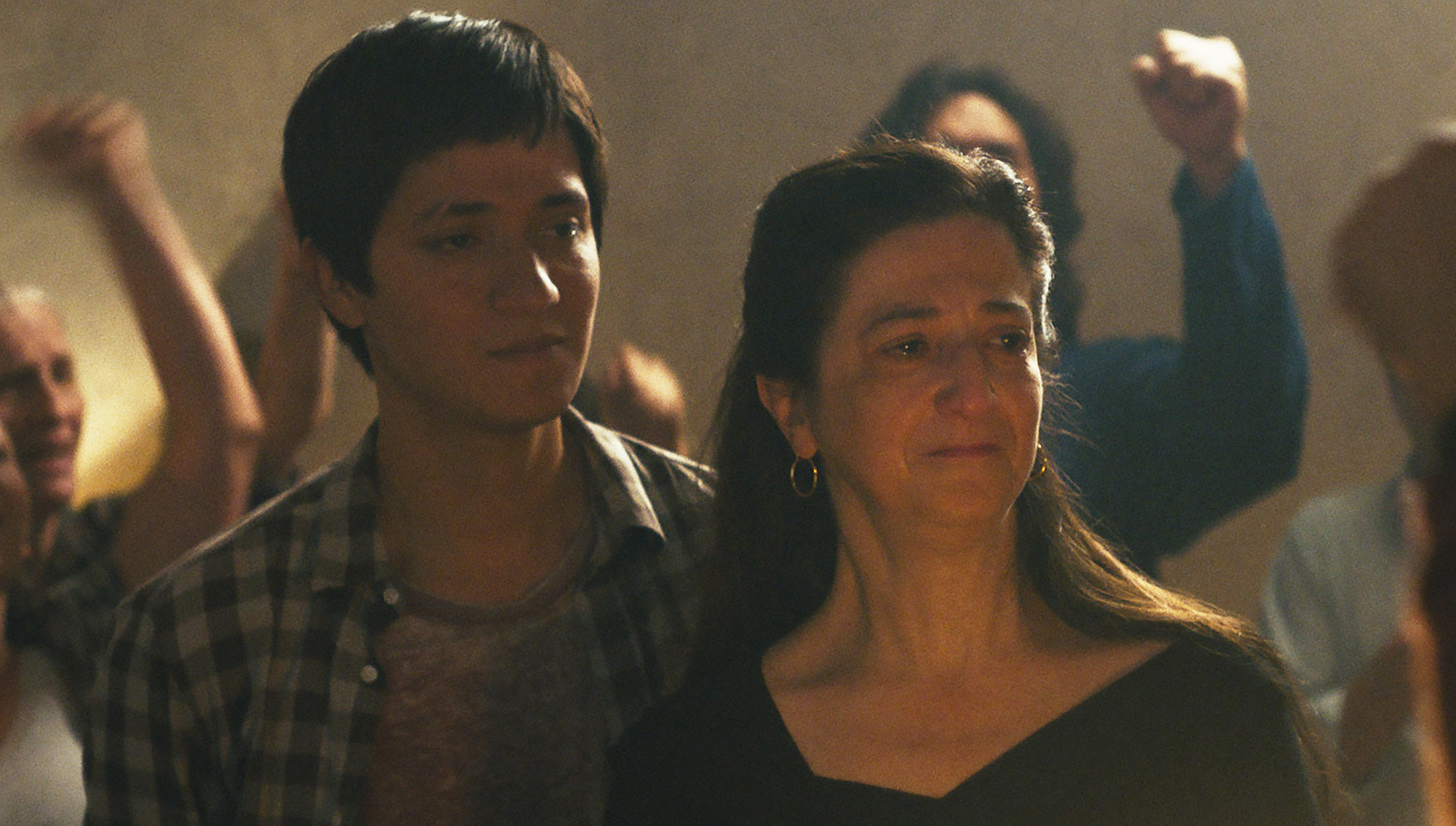
In’ Our Mothers’, Ernesto is busy working on a massive clandestine grave that was discovered in the middle of the Municipal cemetery. It is clear that the military were not particular as to where they left their dead. Another mass grave is just outside the village in the film, although some clandestine burial sites were even dug right inside military installations.
The relationship between Ernesto and his mother Cristina is beautifully crafted, leading to a combination of warmth & love mingled with intrigue. Clearly, Díaz’s autobiographical experiences helped him to understand the many layers of an important relationship like this.
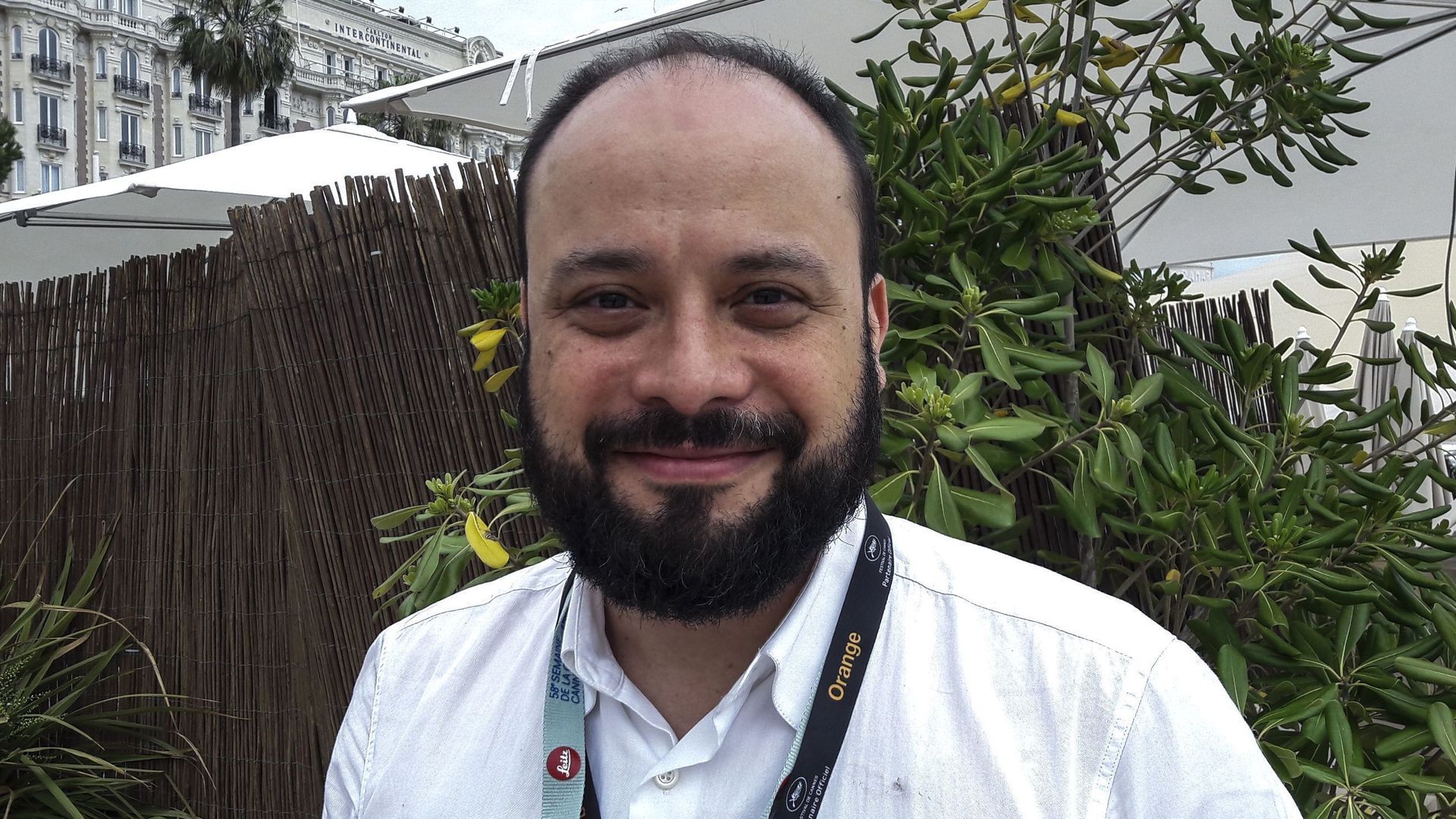
César Díaz
Writer/Director César Díaz has dual Guatemalan-Belgian nationalities. With Belgian, French and European funds plus the distributor Pyramide, the film managed to get the support it needed. Born in Guatemala in 1978. Díaz also studied in Mexico and Belgium and later joined the FEMIS Film, School screenwriting workshop a in Paris. This is his first breakthrough as a feature director, having previously directed award-winning shorts.
Although many of those appearing in the film, like Nicolasa were non-professionals, Díaz, realized that he needed actors for the two main roles of mother and son and turned to Mexico to find them.
“For the role of Cristina, I did mother/son trials. There was a strong connection between
Armando and Emma Dib, who is very well-known in Mexico. They had never met before.
They played several scenes, including the one at the seaside. In the script I had given them
to read, the central question of the father was not dealt with, but they did not follow the text
and did a spontaneous play on the theme. “Do I have his eyes?” “You have his way of
looking at things.” “Do I have his beard?” “You are like him.” If they were able to create this
intimacy in just a few minutes, I thought we would be able to get on. So, I chose them
together.”
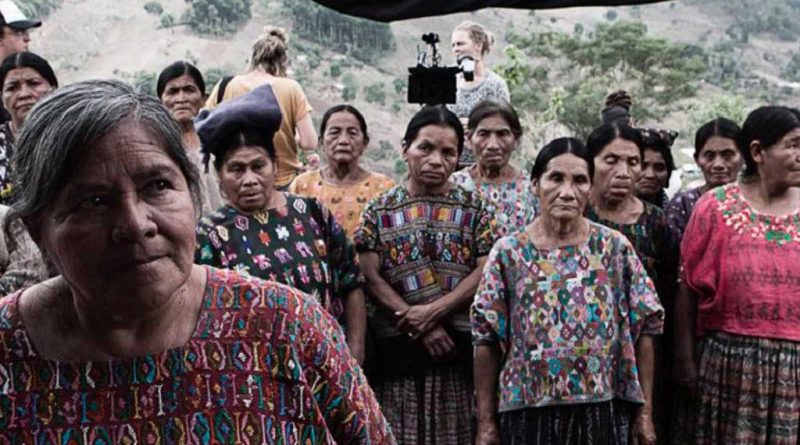
Aurelia Cal as Nicolasa
Diaz’s natural instinct for the right level of intimacy gives this film a depth which is very moving, not only for this relationship, but for the underlying story that emerges as they piece together the past, from bone-to-bone
Peccadillo Pictures presents: -
OUR MOTHERS (Nuestras Madres) will be in cinemas from May 10th 2024.
Awards:
Winner: Camera d’Or: Cannes Film Festival
SACD Award: Cannes Critics Week
Best New Director: Chicago International Film Festvial
Best First Feature: Margrite Awards (Belgium Oscars)
BEST FILM: People’s Choice Award, Pingyao Film Festival
Cast: -
ARMANDO ESPITIA (Ernesto) is a Mexican actor and producer. He previously appeared in
the series El Recluso and Diablo Guardian. He is also known for his performances in Heli
and Netflix I Carry You with Me.
EMMA DIB (Cristina) is a Mexican actress who has also appeared in critically acclaimed
titles like Blue Eyes and Chilango Chronicles.
AURELIA CAL (Nicolasa) is an actress who made her film debut in Our Mothers. Cal has
received praised for her performance in the film. Prior to the film, Cal had never acted.
Crew: -
Written & directed by: César Díaz / Produced by: Delphine Schmit, Géraldine Sprimont / Director of Photography: Virginie Surdej / Film Editing by: Damien Maestraggi / Music by: Rémi Boubal / Casting by: Pamela Guinea / Art Direction: Pilar Peredo


